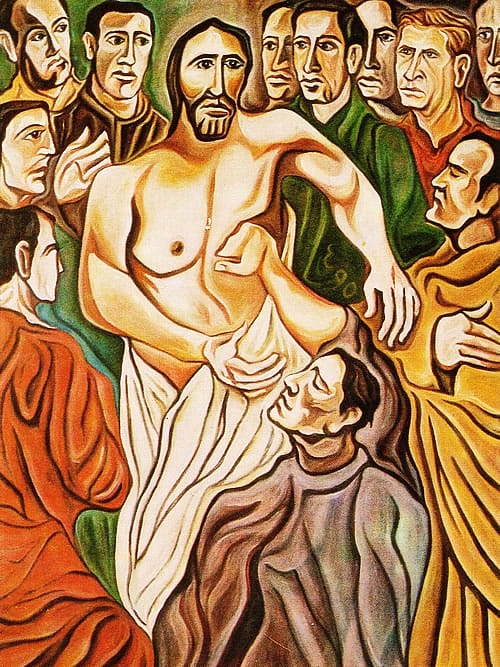Using our imagination we can conjure up in our minds the circumstances in which Augustine pronounced sermons 227 and 272. Both happened during the morning liturgy on Easter Sunday. The echoes of the Alleluia sung at the Solemn Easter Vigil by hundreds of voices full of ecstatic joy, reverberate still around the walls of the Basilica Pacis of Hippo; the red and white tiles of the baptismal font, still wet from the numerous baptisms that took place the night before in the presence of the bishop and various ministers who mysteriously lit by the flicker of oil lamps, have been witnesses to the new birth of the neophytes.
The hearts of all those gathered for the Easter celebration are full of joy and chief among these we have the new Christians who really stand out for according to the custom of the early Church they are dressed in white garments which they will wear for the whole of the Easter week. They take pride of place in this Easter morning celebration.
The fasts and penances have come to an end and for the neophytes the exorcisms now lie behind. A special time of gladness commences for everyone, for the neophytes as well as for the “old” Christians. All are standing for there is no seating or benches inside the basilica, though some of the older women have brought in rough straw mats from home and sit huddled up near the pillars. Their devotion is stronger than their weakness!
All eyes are fixed on the bishop of Hippo, who wrapped up and dressed in festive vestments and having listened to the Word of God raises his hand like the classic orators of old and asks for silence and calls for attention as he gets ready to deliver his homily.
Unity
In Augustine’s face you can make out his tiredness and the traces of the labours of the previous night. Nevertheless he is well ready and thus shows it through the powerful pictures he paints and the embracing quality of his gestures. His voice is a touch hoarse and breaking up a bit for he did talk a lot during the Vigil. Today he has to do the same; he continually clears his throat, however the sheer power of his words seduces each and everyone of his listeners. In the distance an annoying and constant singsong can be heard. It’s the hymns from the Donatist church.
They are also celebrating Easter, though not in communion with the Catholics. Augustine starts his sermon and he cannot forget the call to unity and communion, and this singing like a hurting distant murmur, reminds him of that.


